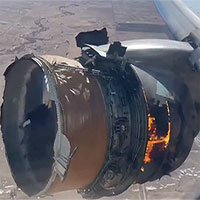Referring to the statue of soldiers, many people will immediately remember the statues found inside the tomb of Qin Shi Huang.
Over thousands of years of history, although the statues of soldiers and horses here have been lost over the years, the structure and shape are basically still preserved relatively perfectly.
However, what makes many people wonder is that: Although these statues have many different points, they all have one noticeable common point, that is, they are not equipped with iron helmets.
Many experts have confirmed that the statue of soldiers and horses in the tomb of Tan Thuy Hoang was created based on real human prototypes.
Then the statue without the helmet is equivalent to the soldiers of the Qin state in the past going to war without this protective item. Is there a secret behind it?

The people of Qin are famous for their martial spirit. (Illustration).
According to Qulishi, if you look at the images at the excavation sites or the images published in the mass media, it is not difficult to see that the statues of soldiers in the tomb of Qin Shi Huang are not equipped. steel hat.
In fact, a few of them wear round hats with a relatively small size. Archaeologists explain that this is a type of head covering made from burlap that was relatively common at that time.
In addition, some statues of higher-ranking generals will wear hats made from buffalo skin, while most regular soldiers only have their hair tied up in a bun on their heads.
However, whether they were generals or soldiers, the statues found in the tunnels of soldiers at the tomb of Qin Shi Huang were not wearing helmets.
Is it a manifestation of the lack of military funds in equipping the army or the lack of materials in the process of creating these statues?
According to the explanation of the historical analysis site Qulishi (China), the main reason why the statues of soldiers and horses in the tomb of Qin Shi Huang are not equipped with iron helmets lies in the fact that the people of the Qin country are famous for their spirit. martial arts.

The soldiers of the Qin state did not care about life and death at all. (Illustration).
Sima Thien in “History” once wrote : “Qin, bordered by hundreds of thousands” , means that the Qin country has an army of up to millions of people wearing armor.
However, according to the explanation of experts, armor here is only the armor worn on the body, not including the helmet to protect the head.
Each different army group will be equipped with different types of armor. At that time, these equipment were also only made from animal skins.
A great thinker of the Warring States period, Han Fei Tu, also recorded his feelings about his first contact with the Qin people in one of his novels.
He said that every time the people of Qin heard about fighting, they stomped their feet, hurried and eager as if they couldn’t wait, not caring at all about life and death.
Legend has it that every time the soldiers of this country went to battle with their heads bare, they bravely rushed forward, comparing the army of 6 countries with the Qin army is like fighting with eggs. They hold people’s heads with their left hands, take prisoners with their right hands, constantly chasing and killing their opponents…
Not only stopping there, “History” of Sima Thien also described: On the battlefield, the Qin army left themselves naked, even the armor was removed.
Not wearing a helmet or removing armor on the battlefield is also considered a way to overwhelm the enemy’s momentum when going to battle.
This is considered one of the clearest expressions of the martial spirit of the Qin people . Therefore, it is very reasonable that the soldiers of the Qin state do not wear helmets when going to battle.
Another reason related to the Qin army not wearing helmets when going to battle also comes from their fighting motivation .
According to Qulishi, the reason why Qin soldiers heroically killed the enemy on the battlefield without caring about their own life and death was related to the reward system at that time.
Accordingly, each soldier of this country only needs to get 1 head of the enemy to be able to promote 1 level of title, along with the rewards of land and servants.
Thus, once you get more heads, the chances of promotion with these soldiers will be higher.
Not stopping there, a person’s merits can also be related to the honor and shame as well as the lives of other family members.
For example, for a soldier who gets 2 enemy heads, if his parents are criminals, they will be released immediately. In case the wife of this person was from a slave background, she would also become a commoner.
Not only that, the merit of fighting can also be passed on to the next generation. Specifically, if a family has a father who dies in battle, the merits of the father’s life will be passed on to the children.
This means that in the Qin country at that time, if one person made merit, the whole family would enjoy fortune.
Therefore, it can be said that the honorary title is the main motivation for the soldiers of the Qin Kingdom to heroically kill the enemy on the battlefield without regard to life and death.
And according to historical records, until the time of unification of 6 countries, the number of people killed at the hands of this country’s army was estimated to be up to … 160,000.
From the above examples, it can be seen that with a martial and brave army like the Qin army, wearing an iron helmet to protect yourself when going to the battlefield seems unnecessary.
Because in their eyes, killing the enemy is often placed above their own life and death.

